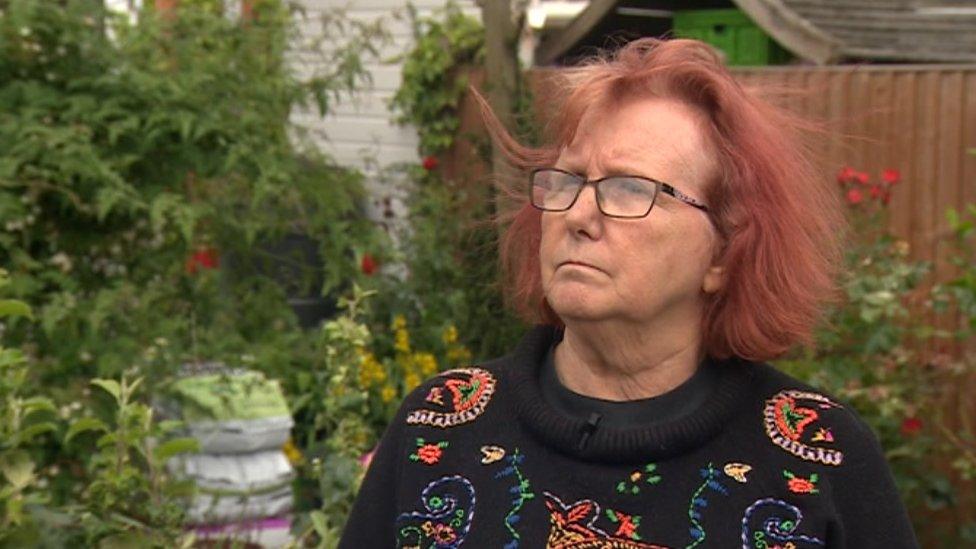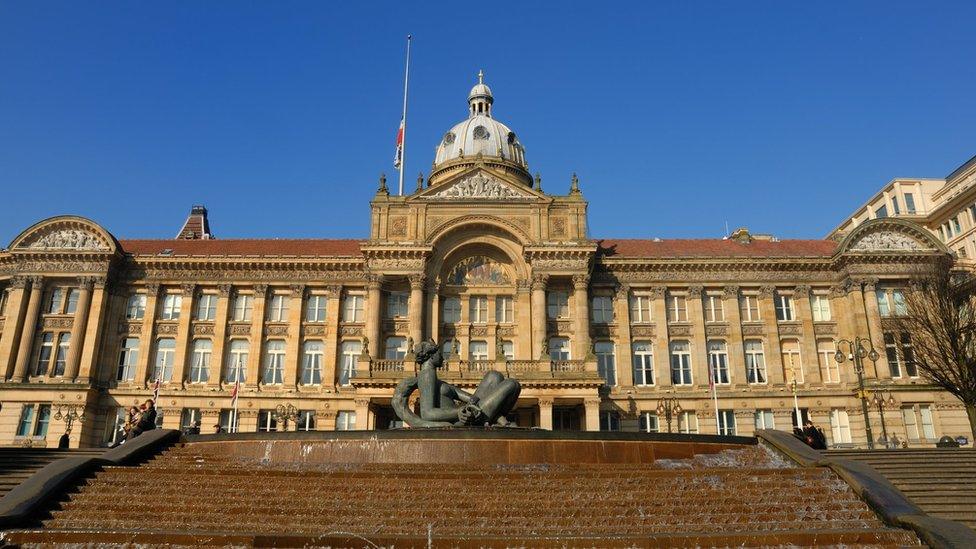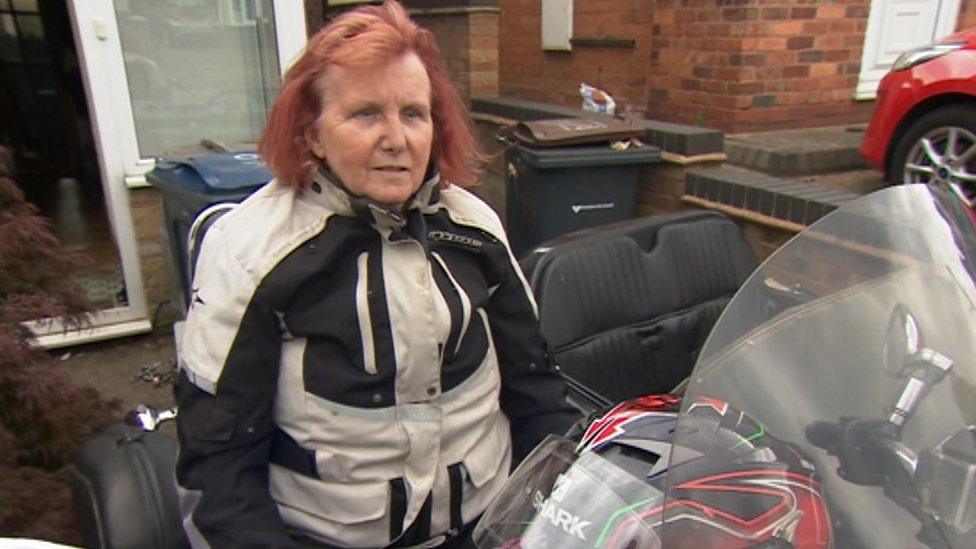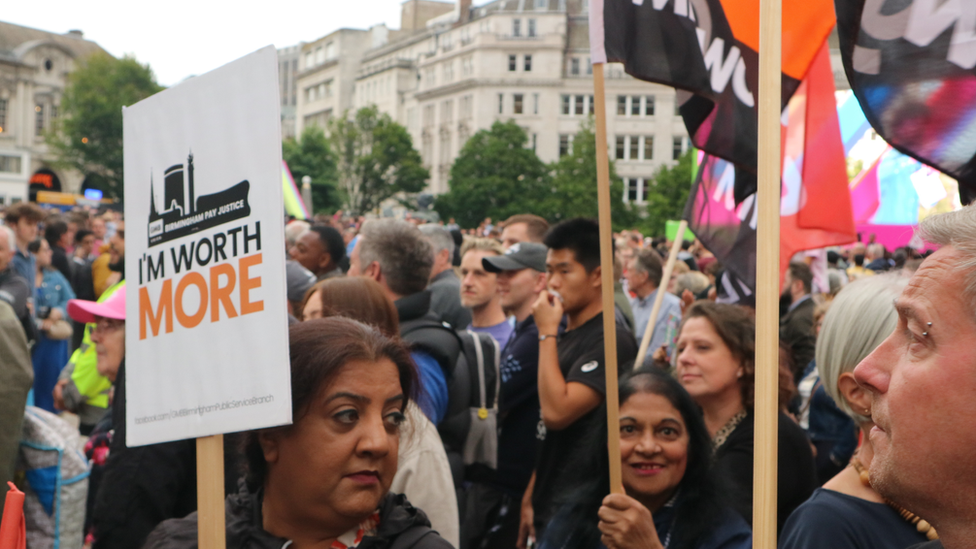Birmingham City Council equal pay failures left worker feeling 'worthless'
- Published

Sally Maybury worked for Birmingham City Council for 22 years and says she felt "undervalued"
A former council worker who won an equal pay claim against her employer said she had pursued the case because she had felt "undervalued".
Birmingham City Council has paid out almost £1.1bn in equal pay claims since a landmark case was brought against the authority in 2012.
This week it stopped all non-essential spending after revealing it still faces a bill of up to £760m.
Sally Maybury said she was shocked the issue had not been dealt with.
"This is the third time - why couldn't they get it right after the first and second generation claims all those years ago?" she said.
"It just seems so peculiar that the same thing's happened again."
The former admin assistant was one of 174 people who won a ruling at the Supreme Court more than a decade ago.
The court found hundreds of mostly female employees working in roles such as teaching assistants, cleaners and catering staff missed out on bonuses which were given to staff in traditionally male-dominated roles such as refuse collectors and street cleaners.
Ms Maybury's undisclosed settlement helped pay for a new boiler and bathroom, but during her 22-year career she said she had faced having to cover everyday costs with credit cards.

As of March, the council's equal pay liability was estimated to be between £650m and £760m
"I felt undervalued and treated as if I was worthless," the 71-year-old said.
"It was very difficult, I was earning about £18,000, but as soon as I hit £22,000, there were no more incremental pay rises so my salary was kept quite low.
"I remember one year, my tax credits went up, even though my salary didn't - that's just crazy."
At one stage Ms Maybury said she could not afford her electricity bills and had to have a payment meter fitted.
Birmingham City Council has faced criticism for its handling of the equal pay claims from opposition councillors as well as the GMB union, which represents the claimants.
It has apologised for failing to get the situation under control - last week it said the costs were increasing by as much as £14m a month.
The council, the largest local authority in Europe, has set up two reviews, including a judicial inquiry, to examine how the equal pay liability had continued to grow and who was accountable.

Ms Maybury said she had struggled to pay gas and electric bills while working for Europe's largest local authority
Ms Maybury described her own settlement as "life-changing".
"The thought that [refuse workers] deserved more money than I did for doing my job was so unfair," she said.
"Life had been such a struggle for so many years. I was told by my managers that I was doing a good job and was a valued member of staff, but the councillors didn't value me."
Stuart Richards, a senior organiser for the GMB union, said: "Birmingham City Council has discriminatory pay structures and that's an appalling thing for any council to admit to.
"It's great that they have done that now, but we need to work together to solve those issues and start paying those women workers what they are actually worth.
"Unless we do that soon and get a time scale of how we're going to do that together then there is going to be further industrial unrest."
Birmingham City Council leader councillor John Cotton said: "I've been clear from day one that I will take whatever action is needed to address the substantial challenges facing the council and these measures are essential to grip the situation - particularly in terms of financial controls, organisational capacity and improved governance."

Follow BBC West Midlands on Facebook, external, Twitter, external and Instagram, external. Send your story ideas to: newsonline.westmidlands@bbc.co.uk, external
Related topics
- Published5 July 2023
- Published20 June 2023

- Published28 June 2023
